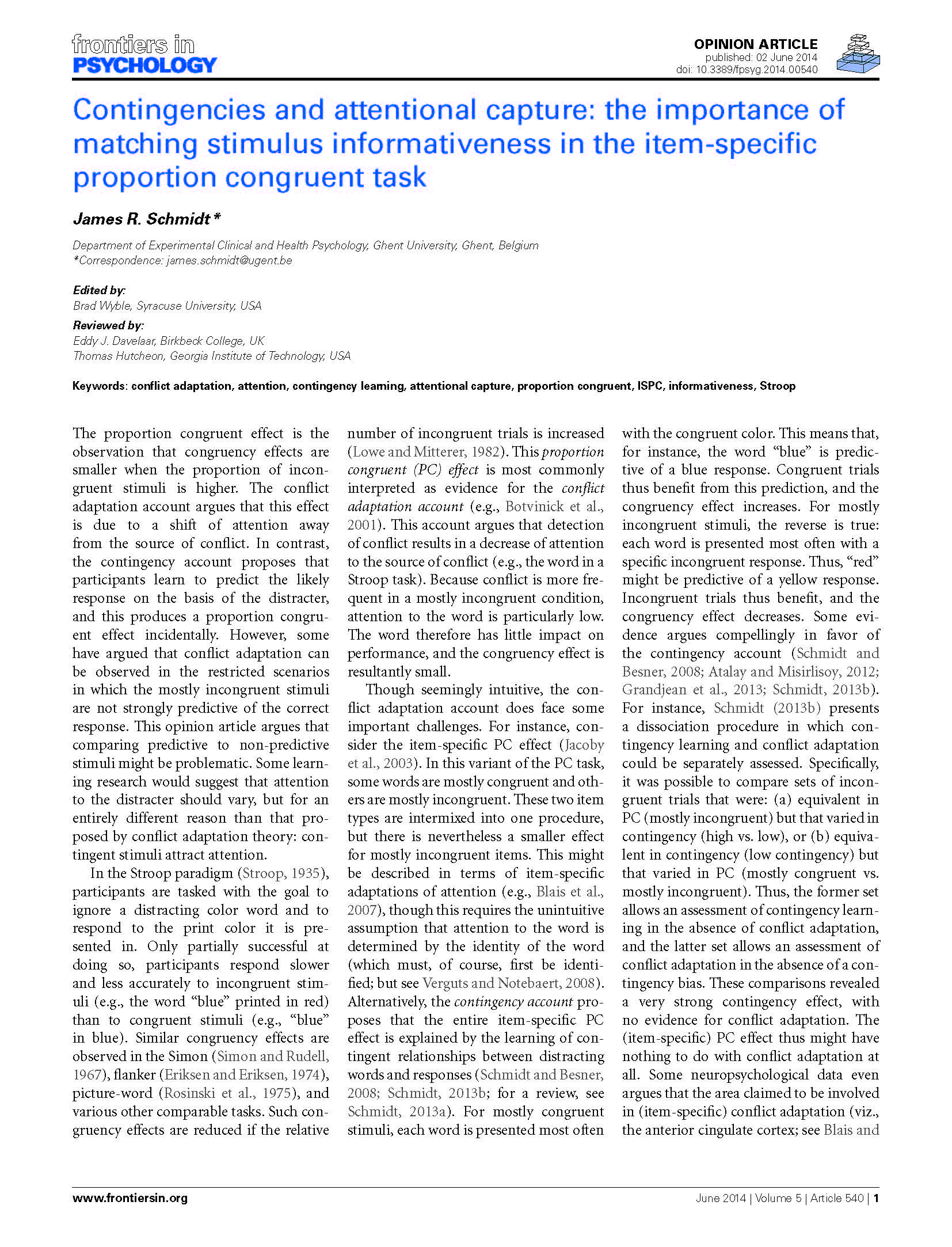The proportion congruent effect is the observation that congruency effects are smaller when the proportion of incongruent stimuli is higher. The conflict adaptation account argues that this effect is due to a shift of attention away from the source of conflict. In contrast, the contingency account proposes that participants learn to predict the likely response on the basis of the distracter, and this produces a proportion congruent effect incidentally. However, some have argued that conflict adaptation can be observed in the restricted scenarios in which the mostly incongruent stimuli are not strongly predictive of the correct response. This opinion article argues that comparing predictive to non-predictive stimuli might be problematic. Some learning research would suggest that attention to the distracter should vary, but for an entirely different reason than that proposed by conflict adaptation theory: contingent stimuli attract attention.
Contingencies and attentional capture: The importance of matching stimulus informativeness in the item-specific proportion congruent task
